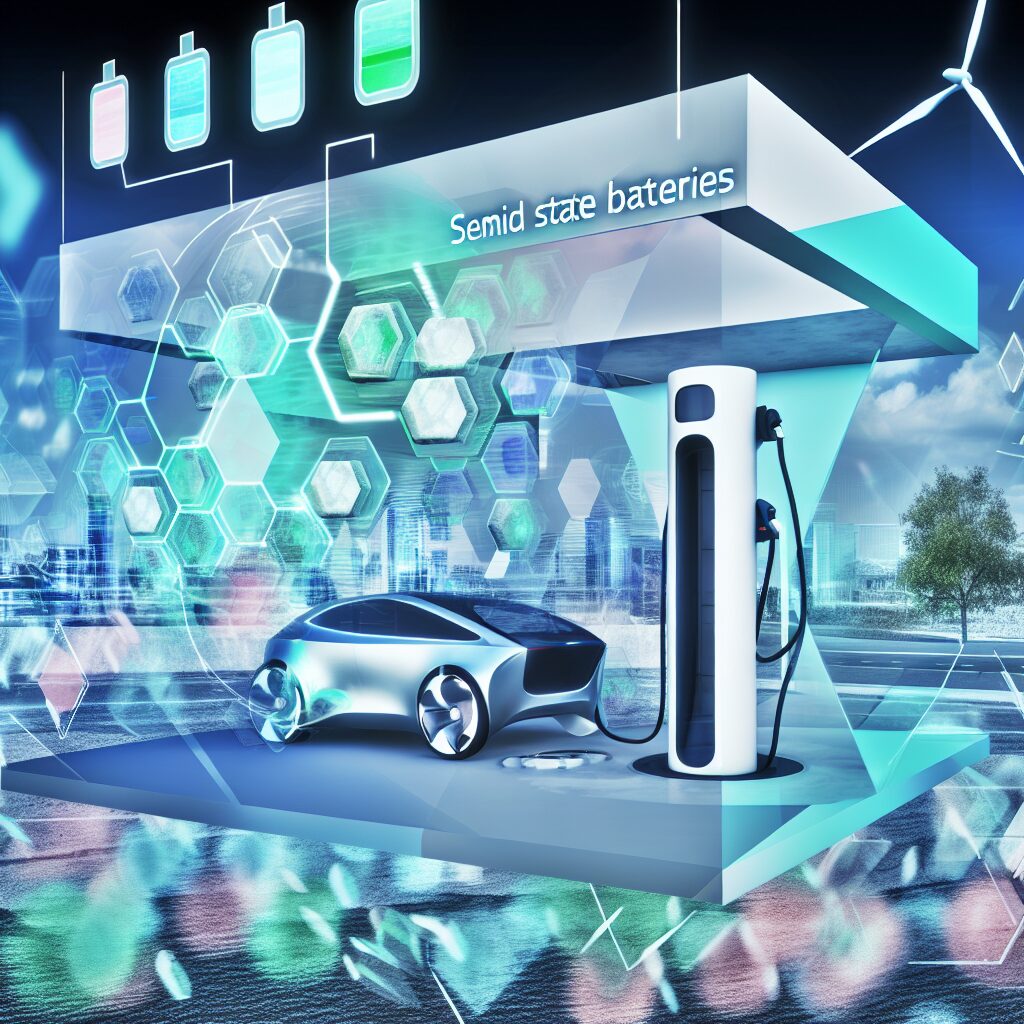The Future of Electric Vehicle Batteries: Semi-Solid State Technology
The electric vehicle (EV) industry is on the brink of a significant transformation, and the catalyst for this change lies in the next generation of battery technology. As the demand for EVs continues to soar, the race to develop more efficient, safer, and cost-effective batteries has intensified. A promising contender in this race is semi-solid state battery technology, which could redefine the EV landscape.
Understanding Semi-Solid State Batteries
Traditional lithium-ion batteries, which have powered most of our electronic devices and electric vehicles for years, come with certain limitations. These include safety concerns, limited energy density, and high production costs. Semi-solid state batteries aim to address these issues by combining the best attributes of solid-state and liquid electrolyte batteries.
Semi-solid state batteries replace the liquid electrolyte found in conventional lithium-ion batteries with a semi-solid electrolyte. This innovation significantly reduces the risk of leakage and fire, enhancing safety. In addition, these batteries promise a higher energy density, which translates to longer driving ranges for electric vehicles. By using less expensive materials and simplifying the manufacturing process, semi-solid state technology could also lower production costs.
The Advantages Over Traditional Batteries
One of the most compelling benefits of semi-solid state batteries is their potential to improve safety. Traditional lithium-ion batteries can suffer from thermal runaway, a dangerous condition where the battery overheats and can catch fire. The semi-solid electrolyte is more stable, reducing the risk of such incidents.
In terms of performance, semi-solid state batteries are expected to offer higher energy densities than their predecessors. This means that electric vehicles could travel further on a single charge, addressing one of the most significant concerns for potential EV buyers: range anxiety.
Cost is another critical factor. The simplified production process of semi-solid state batteries could lead to lower manufacturing costs, making electric vehicles more affordable for consumers. As battery costs constitute a significant portion of an EV’s price, this advancement could play a crucial role in accelerating the adoption of electric vehicles.
Challenges and Considerations
Despite their potential, semi-solid state batteries are not without challenges. One of the primary hurdles is scalability. The technology is still in its nascent stages, and scaling up production to meet global demand will require significant investment and innovation. Researchers and manufacturers must also ensure that these batteries maintain their performance over time, as degradation can limit their lifespan and efficiency.
Another consideration is the supply chain. Developing a reliable supply chain for the materials needed in semi-solid state batteries is essential. This includes sourcing raw materials sustainably and ensuring that the production process is environmentally friendly.
The Road Ahead
The race to develop the next generation of EV batteries is a global endeavor, with companies and researchers worldwide vying for a breakthrough. Semi-solid state technology is one of the most promising contenders, but it is not the only one. Solid-state batteries, aluminum-ion batteries, and other innovations are also being explored.
For semi-solid state batteries to become mainstream, collaboration between industry players, researchers, and governments is crucial. Public and private investment in research and development will be necessary to overcome the current challenges and bring this technology to market.
The Impact on the EV Market
If semi-solid state batteries can deliver on their promises, the impact on the electric vehicle market could be profound. Longer ranges, improved safety, and lower costs would make EVs more attractive to consumers, potentially accelerating the shift away from fossil fuel-powered vehicles. This shift would not only benefit the automotive industry but also contribute to global efforts to reduce carbon emissions and combat climate change.
Conclusion
Semi-solid state battery technology represents a significant step forward in the evolution of electric vehicle batteries. By addressing the limitations of traditional lithium-ion batteries, this innovation holds the promise of safer, more efficient, and cost-effective electric vehicles. While challenges remain, the potential benefits make semi-solid state batteries a worthy focus for researchers and manufacturers alike.
As the world moves toward a more sustainable future, advancements in battery technology like semi-solid state batteries will play a crucial role. The journey to widespread adoption may be complex, but the destination—a cleaner, greener world—is undoubtedly worth the effort.
Analyzed and outlined by ChatGPT-4o, images by DALL·E 3.
Source
https://www.cnbc.com/2024/10/16/the-race-for-next-gen-ev-batteries-may-soon-pivot-to-semi-solid-state.html

